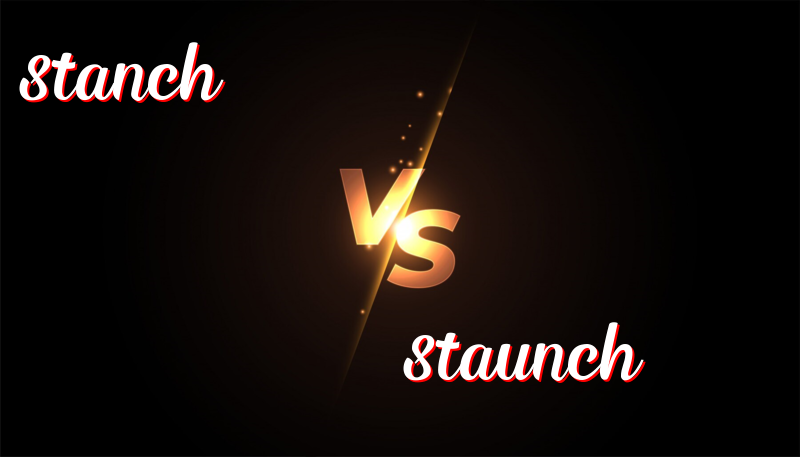英語單詞stanch 與 staunch的區別
August 30, 2024
辨別「stanch」與「staunch」的詳細說明
在英語中,「stanch」和「staunch」是兩個常常被混淆的詞彙。雖然這兩個詞的發音相同,但它們在含義和用法上有很大的不同。本文將詳細說明這兩個詞的歷史、用法以及區分它們的小訣竅。
詞的歷史
「stanch」這個詞源自中古英語中的「stauchen」,意即「停止」或「止住」。最早可以追溯到15世紀,這個詞常被用來指止住液體的流動,特別是指止住血液。
「staunch」來自同樣的中古英語詞根,但發展出了不同的含義。它開始更多地用來形容人或事物的堅定、忠誠及穩固性。
如何使用「stanch」和「staunch」
Stanch
「Stanch」通常作為動詞使用,意思是止住某種液體的流動,特別是血液。
例句:
- She used a clean cloth to stanch the blood.
她用乾淨的布止住了血。 - The doctor was able to stanch the bleeding quickly.
醫生迅速止住了出血。 - Efforts were made to stanch the flow of water from the broken pipe.
試圖止住破裂管道中的水流。 - He pressed hard on the wound to stanch the blood loss.
他用力按住傷口以減少失血。 - Medical staff worked to stanch the patient’s severe bleeding.
醫療人員努力止住病人的大量出血。
Staunch
「Staunch」通常作為形容詞使用,意思是某人或某物非常堅定、忠誠或可靠。
例句:
- She is a staunch supporter of environmental causes.
她是一位環保事業的堅定支持者。 - He is known to be a staunch friend in times of need.
他在需要時是一位可靠的朋友。 - The staunch walls of the fortress resisted the attack.
堡壘堅固的牆抵擋了攻擊。 - The politician remained a staunch advocate for human rights.
這位政治家一直是人權的堅定擁護者。 - They provided staunch opposition to the new policies.
他們堅定地反對新政策。
區分這兩個詞的訣竅
要記住「stanch」和「staunch」的區別,可以使用以下的小訣竅:
- 「Stanch」和「stop」都以「st」開頭,因此可以聯想為「stanch」是用來「停止」液體流動的。
- 「Staunch」和「strong」都以「st」開頭,並且都包含「a」,所以可以記憶為「staunch」是用來形容「堅定」或「可靠」的人或物。
總結
總之,「stanch」和「staunch」雖然發音相同,但含義和用法不同。「Stanch」用於動詞形式,意思是止住液體的流動,而「staunch」是形容詞,意指某人或某物非常堅定或忠誠。通過了解它們的歷史和使用範例,並運用小訣竅,可以更容易地區分這兩個詞的用法。

Leave a Reply
You must be logged in to post a comment.